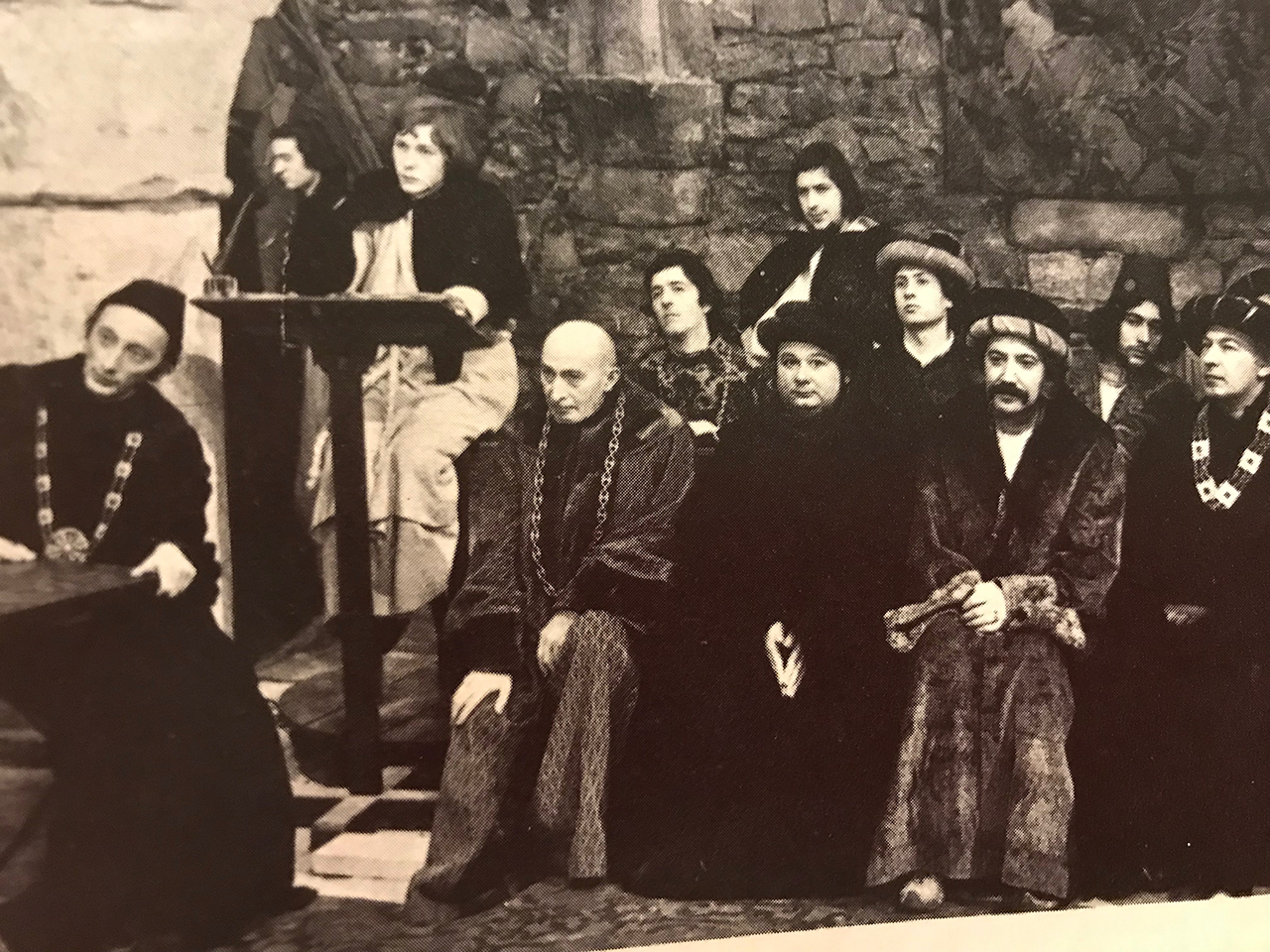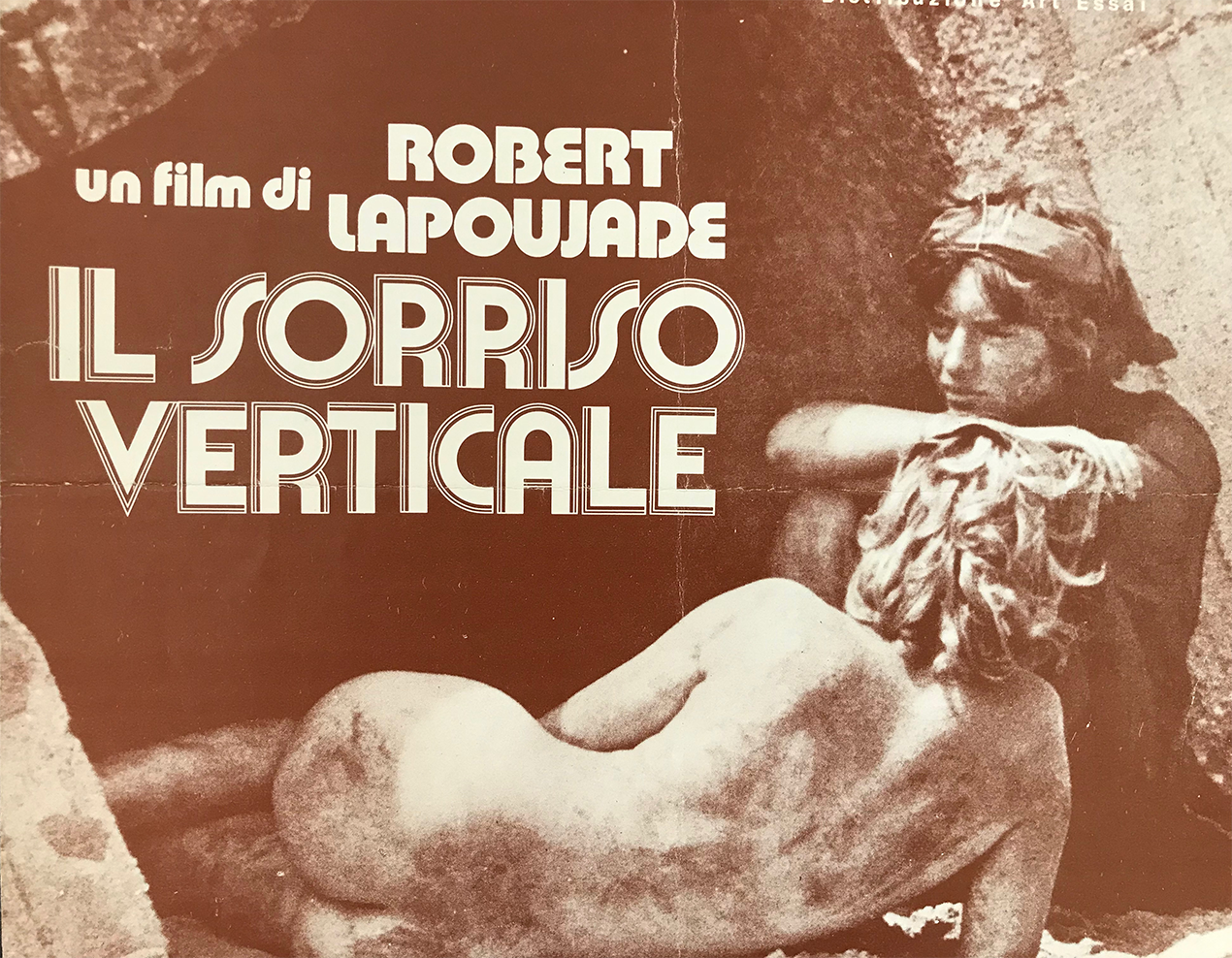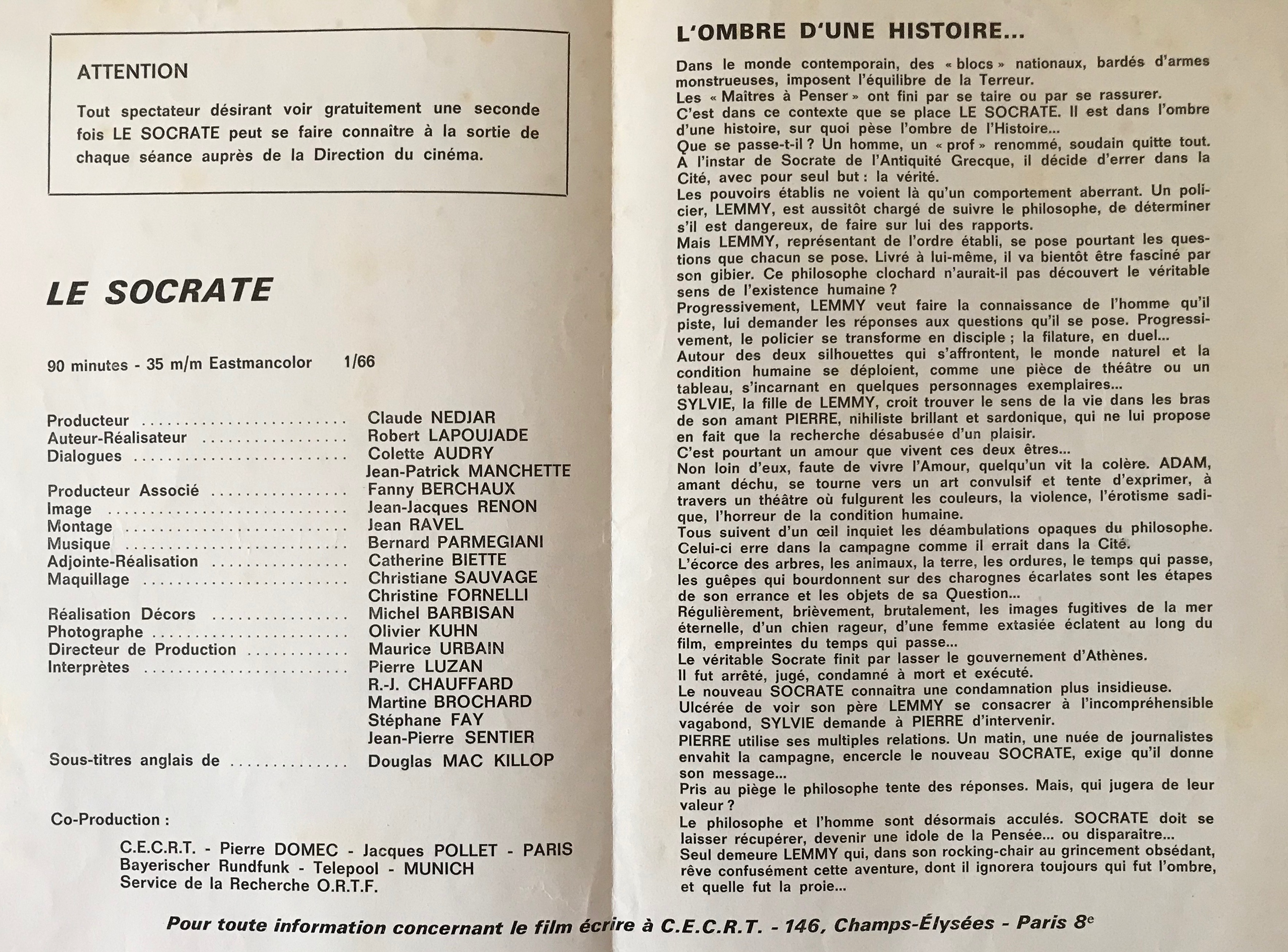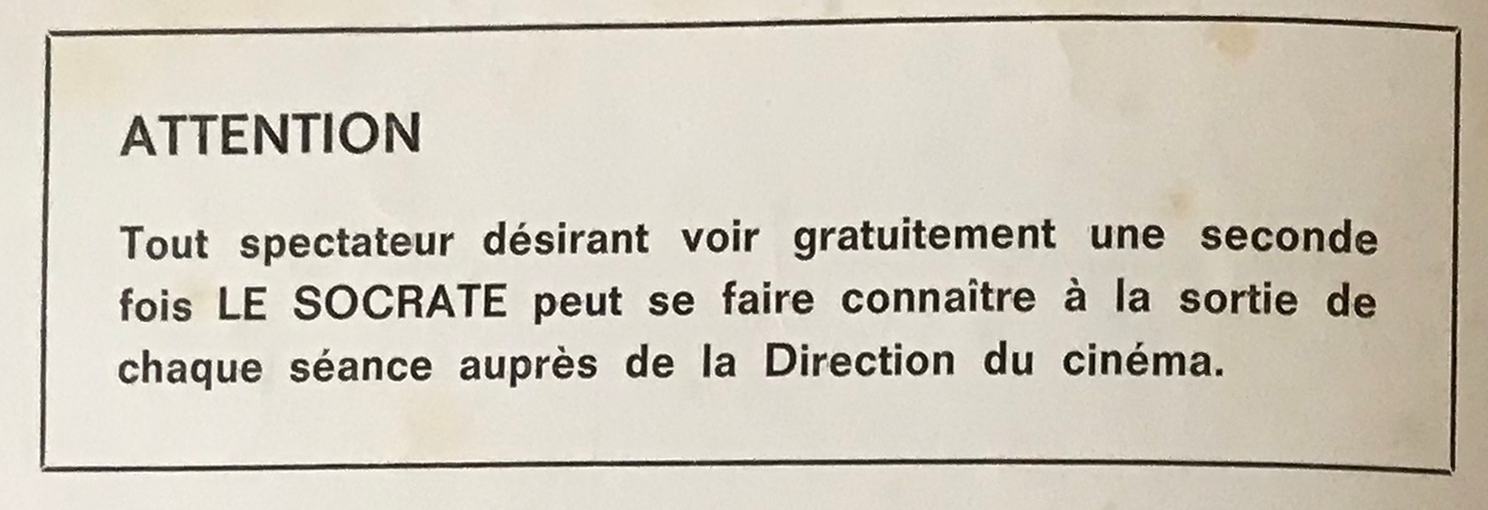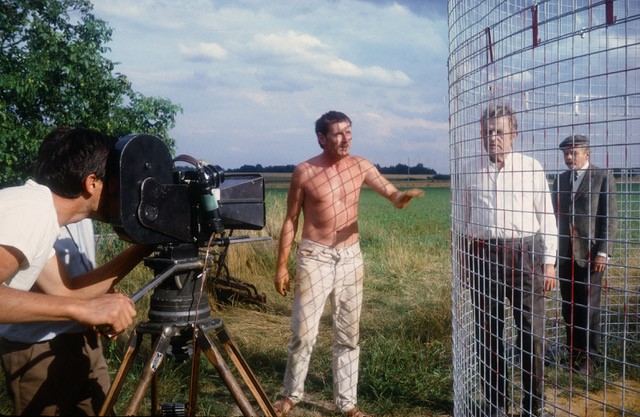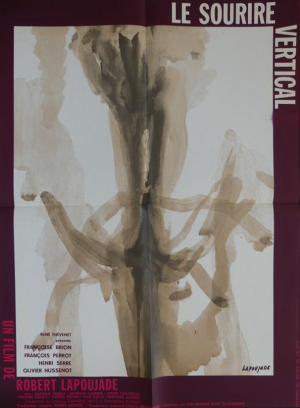Feature Films
LE SOCRATE (The Socrates) 1968
Special Jury Prize, Venice Film Festival 1968
The film tells the story of a philosopher who abandons everything to seek the truth.
Lemmy, a policeman, follows this original character and gradually becomes his disciple. The film draws its originality from a juxtaposition of various types of ‘collage’ (fixed shots, offbeat remarks, etc.)
Producer: Claude Nedjar
“The viewer is assailed by cinematic writing that is unusual. It is beset by a number of problems which arise at sometimes very very high speeds. Therefore, he is both effectively passive, but on the other hand he is so assailed that he is forced to take a stand. This is also why we often do two sessions, one of which is free. This then allows the spectator, possibly, to come and make a judgment.” R. Lapoujade
“Animation is a way of clarifying the vision and thus imperceptibly arriving at an abstraction in the cinema, (…) and in relation to the subject, I believe that it is a question of creating a climate around this film, so that all the daring images are fully justified”. R. Lapoujade
Television broadcast : Cinema review of October 18, 1968
In a report on the shooting of the film Le Socrate, in the middle of the countryside, we see the director at work, notably shooting scenes in the mud with the actress Martine Brochard. Robert Lapoujade and Claude Nedjar, his producer, talk about the project, its themes, the recourse to animation, the influence of painting on cinema.
INA link : Watch the video
LE SOURIRE VERTICAL (The vertical smile) 1973
Dialogues: R. Lapoujade, Music: Patrice Scortino, with Françoise Brion, François Perrot, Henri Serre, Olivier Hussenot, Jean Pierre Mocky, Pierre Luzan, R.J. Chauffard and Martine Brochard. The film was presented at the Directors’ Fortnight, at the Cannes Film Festival in 1973. It is taken from Lapoujade’s novel: l’Inadmissible published in 1970 (Lettres Nouvelles, Denoël). Considered pornographic, it was censored by Maurice Druon, which caused a scandal. The film will be released in theaters after a few cuts. It tells the story of a deputy historian, who, left by his wife, wallows in a kind of cabinet and switches to History on which he grafts his personal problems. Thus the fantasies of the deputy mingle with the evocation of Joan of Arc. There are pictorial themes, in particular the reconstruction of delirious paintings by Hieronymus Bosch.
Production: FILMEL (Rene Chateau Editions)
